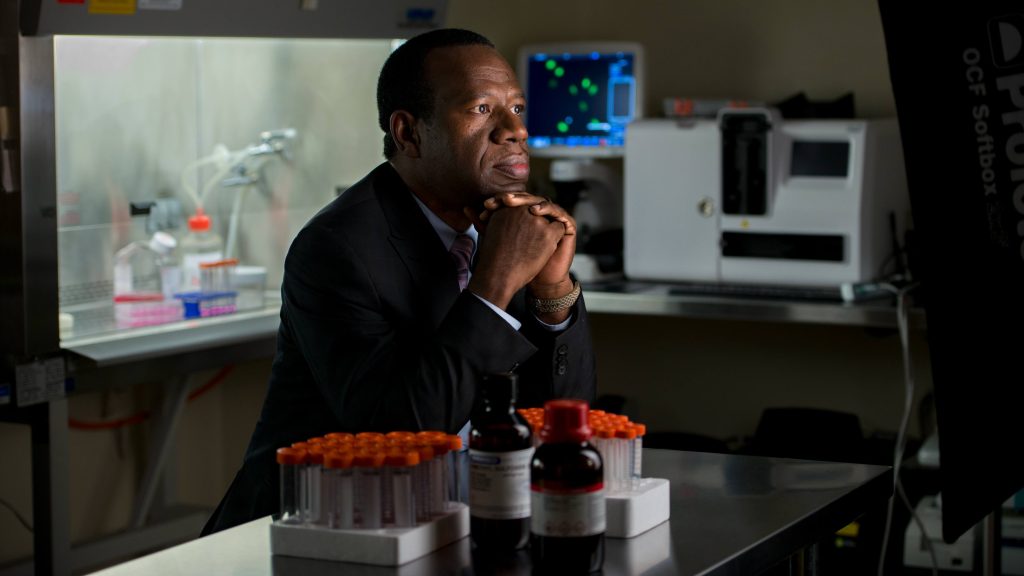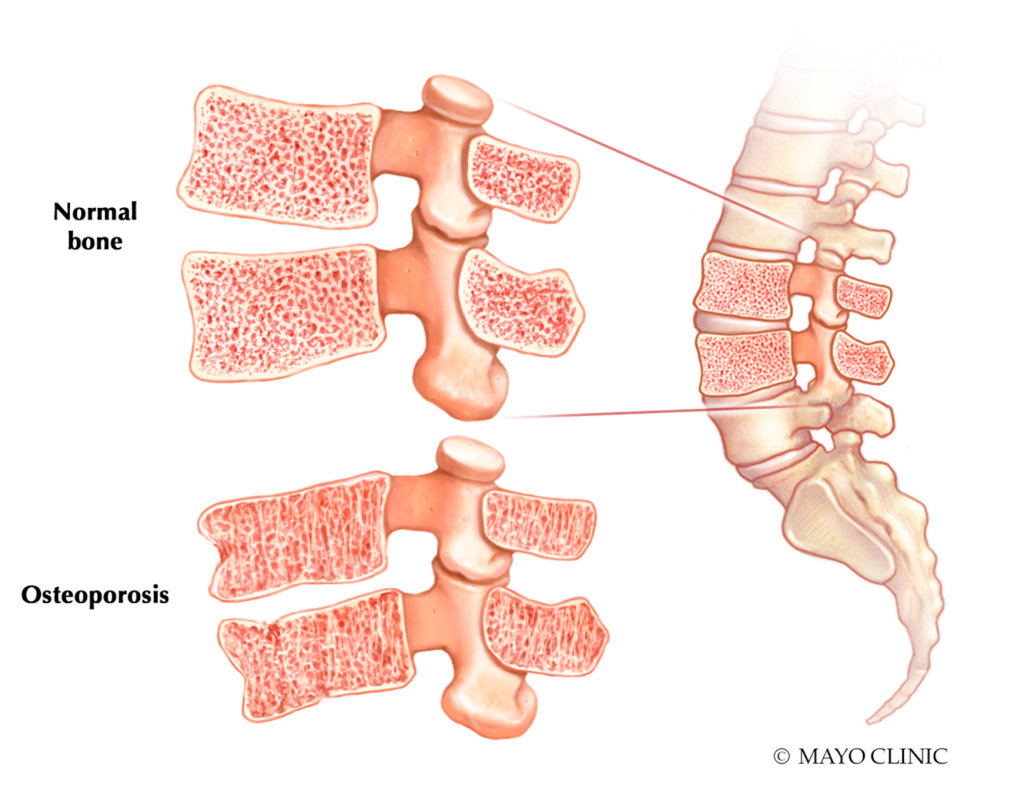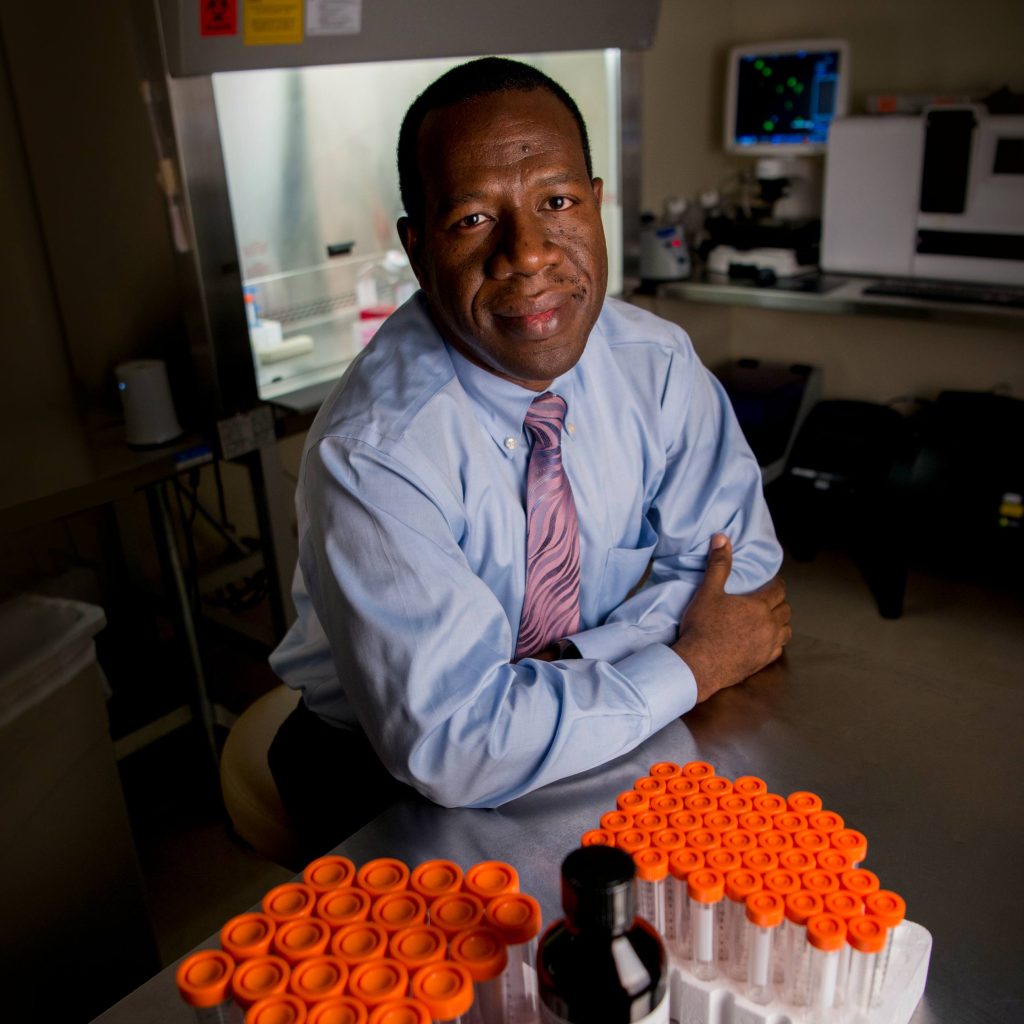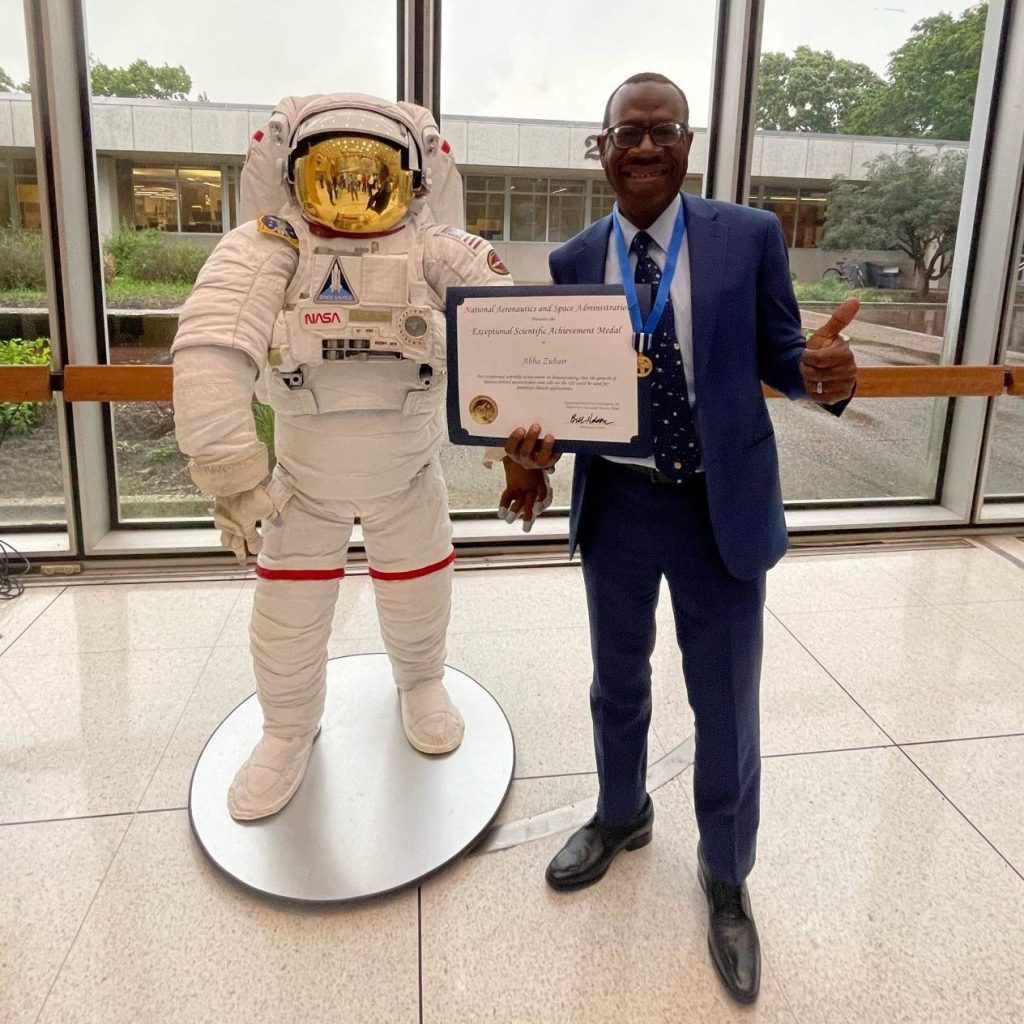-
Research
Mayo Clinic research set to launch aboard NASA mission to International Space Station to explore new therapies for bone loss

JACKSONVILLE, Fla. — Mayo Clinic's pioneering exploration of stem cell-based therapies for bone loss is headed to space. Abba Zubair, M.D., Ph.D., is medical director of Transfusion Medicine and Stem Cell Therapy at Mayo Clinic in Florida.
He is leading research exploring how bone-forming stem cells behave in microgravity in hopes of developing novel treatments for diseases that cause bone loss, including osteoporosis.

Dr. Zubair's research is one of several science experiments selected by NASA as part of the 33rd SpaceX Commercial Resupply Mission to the International Space Station.
The SpaceX Dragon spacecraft on a Falcon 9 rocket is targeted for 2:45 a.m. EDT, Sunday, Aug. 24, from Cape Canaveral Space Force Station in Florida.
In addition to the science experiments, the Dragon spacecraft will deliver 5,000 pounds of supplies, including food and equipment to the crew at the orbital laboratory.
"For this project, our goal is to really understand how gravity affects bone formation and bone loss, particularly in relation to mesenchymal stem cells and other bone-forming cells," says Dr. Zubair.

"This is going to be significant because it will help us better understand the mechanisms of bone loss during vital times such as in menopausal women or people who are bedridden for extended amounts of time."
Dr. Zubair believes the research also will provide hope for hundreds of millions of people worldwide affected by osteoporosis, the disease that weakens bones and increases the risk of fractures.
Dr. Zubair's research also is aimed at improving the health of astronauts. Astronauts lose measurable bone density while living in space.
Dr. Zubair's team has identified a protein in the body called IL-6 that can send signals to stem cells to promote bone formation or bone loss. Dr. Zubair's research will investigate whether a new compound can block IL-6 signals and reduce bone loss while in space.
"If this compound we are testing is able to block the impact of microgravity to slow or stop bone loss, then we can find a treatment for the bone loss in space, and that might also give us a clue into how we may treat people on Earth," says Dr. Zubair.
For more than 20 years, Dr. Zubair has led the Stem Cell Laboratory on Mayo Clinic's Florida campus, developing safe, clinical-grade cell therapy products. His broader research focus aims to harness stem cells to treat degenerative diseases and engineer immune cells to enhance therapeutic outcomes and meet regulatory standards.
Dr. Zubair's research could potentially advance treatments for brain injury, lung disease, stroke and neurological recovery, cancer, blood stem cell therapies, and epilepsy.
His newest research on bone loss will be his fourth space project selected by NASA at the space station. In recognition of his work, Dr. Zubair received an Exceptional Scientific Achievement Medal from NASA.

From an early age in Nigeria, Dr. Zubair was captivated by space, spending countless hours gazing at the night sky and dreaming of becoming an astronaut. His work as a physician-scientist conducting research in space to improve humanity allows him the best of both worlds.
"I love it. It will be my fourth time attending a launch at the space center. I always get a thrill and wish I was on that rocket heading out," says Dr. Zubair. "It is an unbelievable experience."
###
About Mayo Clinic
Mayo Clinic is a nonprofit organization committed to innovation in clinical practice, education and research, and providing compassion, expertise and answers to everyone who needs healing. Visit the Mayo Clinic News Network for additional Mayo Clinic news.
Media contacts:
- Tia Ford, Mayo Clinic Communications, newsbureau@mayo.edu
- Marty Velasco Hames, Mayo Clinic Communications, newsbureau@mayo.edu
Related stories
- Mayo Clinic researcher harnesses uniqueness of space to advance medicine on Earth
- New Mayo Clinic stem cell research to take flight into space
- Mayo Clinic researchers lead transformative shift toward neurorestorative treatment strategies for most severe forms of epilepsy
- Space: A new frontier for exploring stem cell therapy
- Blast off: Stem cells from Mayo Clinic physician’s lab launch into space







